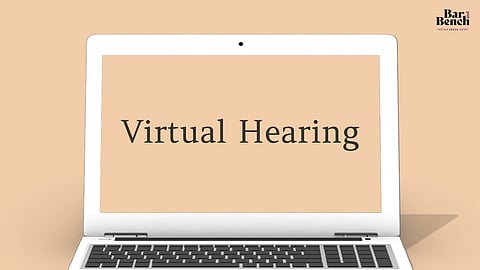
- News
- Columns
- Interviews
- Law Firms
- Apprentice Lawyer
- Legal Jobs
- हिंदी
- ಕನ್ನಡ

The Madhya Pradesh High Court has opposed a plea before the Supreme Court that sought to declare virtual hearing as a fundamental right [All India Association of Jurists v Uttarakhand High Court & Ors.]